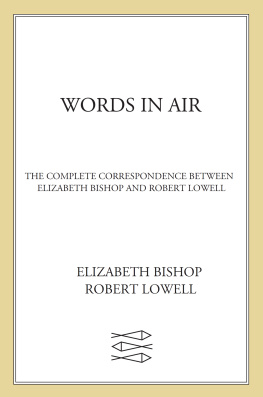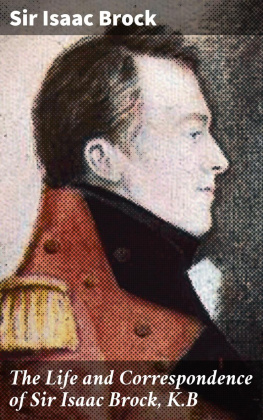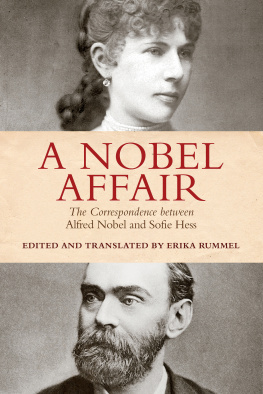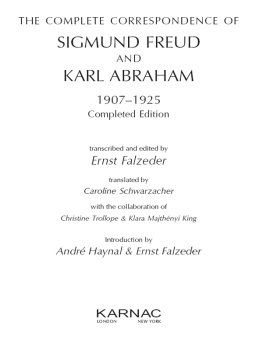The omplete orrespondence of
Hryhory Skovoroda:
Philosop her and Poet
Translated by Eleonora Adams and Michael M.Naydan
Edited by Liliana M.Naydan
Guest Introduction by Leonid Rudnytzky
***
Glagoslav Publications
Preface
This translation is dedicated
in memoriam to Taras Zakydalsky,
who devoted his scholarly life
to the study of Skovoroda
Copyright
The omplete orrespondence of
Hryhory Skovoroda: Philosopher and Poet
Translated by Eleonora Adams and Michael M. Naydan
Edited by Liliana M. Naydan
The cover shows a detail from Blessing of the Road
by Mykola Kumanovsky from the Woskob Private Collection
Interior Design by Dmytro Podolyanchuck
Publishers:
Maxim Hodak and Max Mendor
2016, Glagoslav Publications, United Kingdom
Glagoslav Publications Ltd
88-90 Hatton Garden
EC1N 8PN London
United Kingdom
www.glagoslav.com
ISBN: 978-1-78437-992-6 (Ebook)
This book is in copyright. No part of this publication may be reproduced,
stored in a retrieval system or transmitted in any form or by any means
withoutthe prior permission in writing of the publisher, nor be otherwise
circulated in any form of binding or cover other than that in which
it is published without a similar condition, including this condition,
being imposed on the subsequent purchaser.
A Note on
Hryhory Savych Skovoroda
The present English translation of Hryhory Skovorodas letters tells us much about the Ukrainian philosopher whom, to paraphrase his own self-assessment, the world tried to capture but did not succeed. The collection crystallizes a powerful, all-encompassing image of a polyglot sage, talented poet, fancier of the muses, and a profound mystic whose thinking is steeped in Greco-Roman antiquity and illuminated by Christianity. The letters also reveal some of the contradictions inherent in the authors character and his work. He combines, the astuteness of the serpent, with the simplicity of a dove; he enjoys the solitude of a hermit but also delights in lengthy conversations with friends and, although a vegetarian, is not averse to participating in lavish banquets. He travels all over Europe while pining for his native Ukraine. He is known as a wandering university while rejecting teaching positions in institutions of higher learning. He expounds on the most profound metaphysical problems with simple and down-to-earth language. His teaching is practical and didactic while mitigated with fervent Christian love. He is pure and pious of heart with a childlike faith along with a sharp, penetrating intellect. These qualities of mind and soul, as well as the eccentricities in his life, make him a mysterious enigma that will anon and forever attract people from all walks of life.
In writing this Introductory Note I have requested two of the leading Western Skovoroda scholars, the American Stephen Scherer and the German Roland Pietsch, to dwell briefly on the reasons for Skovorodas enduring popularity among Ukrainians. Here are their respective assessments:
Hryhory Skovorodas links to educated landowners and ecclesiastics are well-known. For them he was a sophisticated religious philosopher. But there is also clear evidence that Skovoroda was connected to the illiterate lower classes. For them he was a strannik [a holy wanderer] who showed them by word and deed how to live more virtuous lives. The combination of Skovorodas intellectual and ethical influence on Ukrainians of such disparate types which began during his own lifetime, but has continued to the present, demonstrates the unusual impact which he has had and will continue to have on the Ukrainian people. (Stephen Scherer, Central Michigan University, Mount Pleasant, Michigan, USA)
Hryhory Skovoroda understands philosophy in its original meaning as the love of wisdom. It is an all-encompassing way of life. His philosophical quest is focused basically on eternal Wisdom (Sophia perennis), which has always been valid for all times and for all peoples. As a result, his original thinking is filled with images, similes and symbols. With these similes and symbols he reveals and veils at the same time the purpose of his philosophy which is the knowledge of self as knowledge of God. Many of his similes, symbols as well as his poems have become part of Ukrainian folk wisdom. Skovorodas philosophy breathes the air of freedom and therefore he has become a national prototype for the Ukrainian people which reminds us that the search for an eternally valid truth and wisdom is the best foundation for a life with dignity. (Roland Pietsch, Ukrainian Free University of Munich)
For Hryhory Skovoroda the mystical life was a soaring toward the Lord. The English language translation of his correspondence sheds considerable light on his lifes path both as a man and as a profound thinker.
Leonid Rudnytzky
Professor Emeritus
La Salle University
A Note on the Translations
At a time when Europe was undergoing the Enlightenment with a focus on the rational and empirical reasoning, Ukrainian philosopher-poet Hryhory Skovoroda (17221794) was creating and living his philosophy of the heart that combines common sense logic with profound Orthodox Christian spiritual faith. Skovoroda was one of the most learned and well-read men of his time. His 125 extant letters, published for the first time in English translation in this volume, comprise a testament to his voracious and capacious mind as well as to his profound lifelong friendship with Mykhailo Kovalynsky and devotion to Christian philosophical principles. He wrote his letters primarily in Latin and in Old Church Slavic, with extensive quotations from Ancient Greek and Roman literati as well as from the Bible and other religious writings. These translations were executed by Eleonora Adams and myself from accurate Ukrainian translations of the Latin letters and from the original Old Church Slavic versions published in three sources: the 1973 two-volume collected works Soviet-period edition of Skovorodas writings, the 1994 two-volume Ukrainian language edition of his writings, and finally the most recent and most authoritative academic edition of his works edited by Leonid Ushkalov and published in 2011. We have tried most closely to follow the 2011 edition. The translation has not been an easy task to say the least, and I applaud the resolve of my co-translator Eleonora Adams in taking on this difficult project.
In terms of specific knowledge about Skovoroda and his penchant for copious citation in his letters, there has been an ever-expanding layering of knowledge added with each edition, with the 2011 edition being the most complete. References to each edition in footnotes will refer to the year of publication (1973, 1994, 2011) or editor (Ushkalov), footnote number, and page number. While the King James version of the Bible has been used for the most part in the translations to correspond to Skovorodas quotations when identifiable, at times it has been necessary to adjust the translation to convey a particular metaphor, word, or phrase that Skovoroda emphasizes in his discourse. Skovoroda mostly seems to quote directly from the Old Church Slavic or Russian Synodal Bibles, but on occasion he relies on memory or paraphrase. Greek, Latin and Old Church Slavic words or phrases in the letters appear in the original language only when highlighted for discussion by Skovoroda (with English translations glossed in footnotes). We have also tried to maintain Skovorodas idiosyncratic capitalization and authorial underscoring, the latter represented by italics in the 2011 Ushkalov edition. Particularly in his later letters Skovoroda capitalizes the first letter of a word for emphasis and sometimes an entire word. While we have striven for consistency in translations of particular words or concepts, on occasion different contexts necessitate flexibility in translation. For example Nachalo and konets can be translated as beginning and end or as alpha and omega. Konets at times can also be translated as aim in yet another context. Context determines the word choice. In our translations we have also tried to maintain the elegant and somewhat archaic feel of Skovorodas writing style in the original. While it is impractical to present all the footnotes and references from the three editions of Skovorodas writings in the translations here, we recommend that scholars engaging in more detailed research make use of the massive number of footnotes in the 2011 Ushkalov edition or an extremely useful Skovoroda concordance that is available online at http://www.artsrn.ualberta.ca/skovoroda/ .






